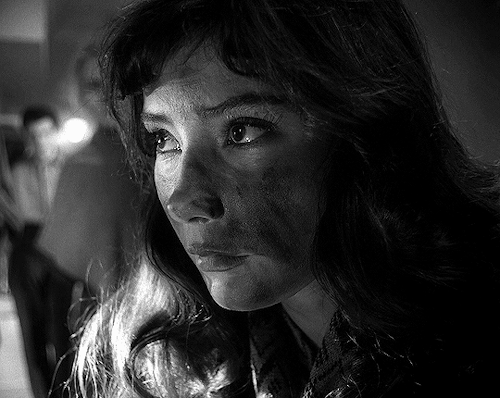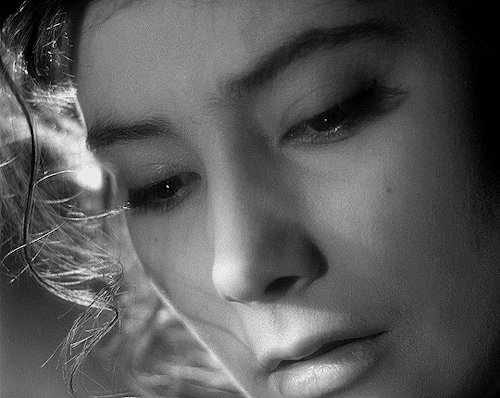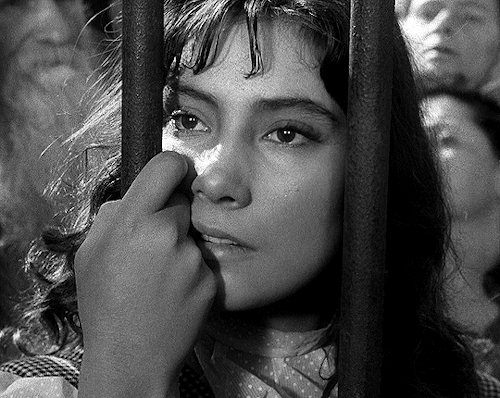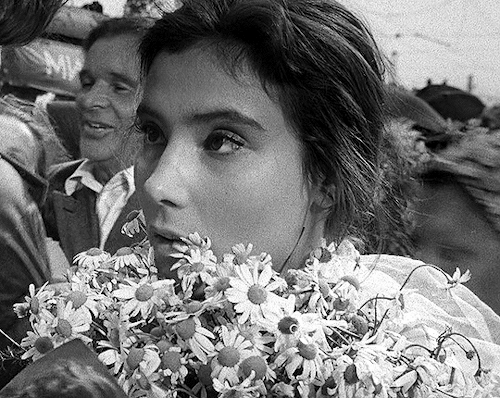2021-11-05 16.01.47.png

2021-11-05 16.01.47.png
More Posts from Raskopal and Others


Roden Crater is a cinder cone type of volcanic cone from an extinct volcano, with a remaining interiorvolcanic crater. It is located northeast of the city of Flagstaff in northern Arizona, United States.
Satellite view of Roden Crater, the site of an earthwork in progress by James Turrell outside Flagstaff, Arizona.

Guerrillera de la "Organización del Pueblo en Armas en las montañas." Guatemala. Junio, 1982. Photo: Pedro Valtierra

The Black Panther’s Free Breakfast for Children Program is probably their best-known initiative, the press finding an intriguing story juxtaposing the Panther’s tough-guy-in-leather-jacket image with the act of serving small children plates of hot food. Importantly, it was mostly women who led these survival programmes, and women made up a majority of the Panther membership. They served in leadership roles from ‘Officer of the Day’ (essentially the office – and people – manager for each branch), to organising the many details of a location’s breakfast programme to initiating and leading food justice, healthcare and housing programmes within neighbourhoods.
So why does the image of the Panthers as a masculinist and violent organisation persist? The answer lies in part with media distortion, influenced both by the sexism and racism that misrepresented the Panthers. There was also a misinformation campaign by the FBI, led by J Edgar Hoover, waged against the increasingly popular Panthers, which had an enduring impact on how people saw them.



Black Girl (1966)


The Key To Nothing ⥲ Aide-mémoires séri. Tanya Rusnak, Décembre, 2019
Usually we imagine that true love will be intensely pleasurable and romantic, full of love and light. In truth, true love is all about work. The poet Rainer Maria Rilke wisely observed: “Like so much else, people have also misunderstood the place of love in my life, they have made it into play and pleasure because they thought that play and pleasure was more blissful than work; but there is nothing happier than work, and love, just because it is the extreme happiness, can be nothing else but work …” The essence of true love is mutual recognition – two individuals seeing each other as they really are. We all know that the usual approach is to meet someone we like and put our best self forward, or even at times a false self, one we believe will be more appealing to the person we want to attract. When our real self appears in its entirety, when the good behaviour becomes too much to maintain or the masks are taken away, disappointment comes. All too often individuals feel, after the fact – when feelings are hurt and hearts are broken – that it was a case of mistaken identity, that the loved one is a stranger. They saw what they wanted to see rather than what was really there.
True love is a different story. When it happens, individuals usually feel in touch with each other’s core identity. Embarking on such a relationship is frightening precisely because we feel there is no place to hide. We are known. All the ecstasy that we feel emerges as this love nurtures us and challenges us to grow and transform. Describing true love, Eric Butterworth writes: “True love is a peculiar kind of insight through which we see the wholeness which the person is – at the same time totally accepting the level on which he now expresses himself – without any delusion that the potential is a present reality. True love accepts the person who now is without qualifications, but with a sincere and unwavering commitment to help him achieve his goals of self-unfoldment – which we may see better than he does.” Most of the time, we think that love means just accepting the other person as they are. Who among us has not learned the hard way that we cannot change someone, mold them and make them into the ideal beloved we might want them to be. Yet when we commit to true love, we are committed to being changed, to being acted upon by the beloved in a way that enables us to be more fully self-actualised. This commitment to change is chosen. It happens by mutual agreement. Again and again in conversations the most common vision of true love I have heard shared was one that declared it to be “unconditional.” True love is unconditional, but to truly flourish it requires an ongoing commitment to constructive struggle and change.
bell hooks, All About Love: New Visions






Old photographs of Pomaks, the Bulgarian Muslim community, from the villages of Kornitsa and Breznitsa in the Rhodope Mountains.



Audre Lorde, (1976), Between Ourselves, in The Black Unicorn, W. W. Norton & Company, New York, NY, 1978, pp. 112-114

The Choice of Evil © Marilyn Kirsch Abstract Painting and Photography by Marilyn Kirsch





Tatiana Samoilova in The Cranes Are Flying 1957 dir. Mikhail Kalatozov
-
 gregbsl liked this · 1 year ago
gregbsl liked this · 1 year ago -
 photoarellanes liked this · 1 year ago
photoarellanes liked this · 1 year ago -
 raghad890 liked this · 2 years ago
raghad890 liked this · 2 years ago -
 heavyfuckingmetalbitch-blog liked this · 2 years ago
heavyfuckingmetalbitch-blog liked this · 2 years ago -
 ladyflashhisdead liked this · 2 years ago
ladyflashhisdead liked this · 2 years ago -
 kashikaluka13 liked this · 2 years ago
kashikaluka13 liked this · 2 years ago -
 mymusicbias liked this · 2 years ago
mymusicbias liked this · 2 years ago -
 hamthatbitch reblogged this · 2 years ago
hamthatbitch reblogged this · 2 years ago -
 dxxtinyy reblogged this · 2 years ago
dxxtinyy reblogged this · 2 years ago -
 01-11-81 liked this · 2 years ago
01-11-81 liked this · 2 years ago -
 that1girltey reblogged this · 2 years ago
that1girltey reblogged this · 2 years ago -
 xodvs liked this · 2 years ago
xodvs liked this · 2 years ago -
 buddhaspalm liked this · 2 years ago
buddhaspalm liked this · 2 years ago -
 jby-bp reblogged this · 2 years ago
jby-bp reblogged this · 2 years ago -
 golden-th0ts liked this · 2 years ago
golden-th0ts liked this · 2 years ago -
 nightride reblogged this · 2 years ago
nightride reblogged this · 2 years ago -
 gurl-gangsta reblogged this · 2 years ago
gurl-gangsta reblogged this · 2 years ago -
 the-weird-cousin liked this · 2 years ago
the-weird-cousin liked this · 2 years ago -
 pulchritudeaboutit reblogged this · 2 years ago
pulchritudeaboutit reblogged this · 2 years ago -
 dazjavu reblogged this · 2 years ago
dazjavu reblogged this · 2 years ago -
 dazjavu liked this · 2 years ago
dazjavu liked this · 2 years ago -
 multiplatinumclit liked this · 2 years ago
multiplatinumclit liked this · 2 years ago -
 bubbleinfuser1 reblogged this · 2 years ago
bubbleinfuser1 reblogged this · 2 years ago -
 bubbleinfuser1 liked this · 2 years ago
bubbleinfuser1 liked this · 2 years ago -
 saddogg0 liked this · 2 years ago
saddogg0 liked this · 2 years ago -
 grrlblunt liked this · 2 years ago
grrlblunt liked this · 2 years ago -
 evilkanyeevil liked this · 2 years ago
evilkanyeevil liked this · 2 years ago -
 lurklore liked this · 2 years ago
lurklore liked this · 2 years ago -
 klementunes liked this · 2 years ago
klementunes liked this · 2 years ago -
 syancee liked this · 2 years ago
syancee liked this · 2 years ago -
 inmystateofbuzz liked this · 2 years ago
inmystateofbuzz liked this · 2 years ago -
 drvista liked this · 2 years ago
drvista liked this · 2 years ago -
 dsycrdns liked this · 2 years ago
dsycrdns liked this · 2 years ago -
 tuzlukaramel liked this · 2 years ago
tuzlukaramel liked this · 2 years ago -
 theycallmemu liked this · 2 years ago
theycallmemu liked this · 2 years ago -
 beardedpersonafishgarden liked this · 2 years ago
beardedpersonafishgarden liked this · 2 years ago -
 poorpeoplewithmoneyonly reblogged this · 2 years ago
poorpeoplewithmoneyonly reblogged this · 2 years ago -
 cosmicdog99 reblogged this · 2 years ago
cosmicdog99 reblogged this · 2 years ago -
 rusafiyr liked this · 2 years ago
rusafiyr liked this · 2 years ago -
 teenagevoidathletewagon liked this · 2 years ago
teenagevoidathletewagon liked this · 2 years ago -
 fash0e liked this · 2 years ago
fash0e liked this · 2 years ago
